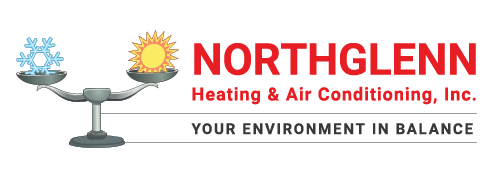
With proper maintenance, your air conditioner can run for 15 years or longer. But even the best maintained air conditioner will need to be updated eventually.
When you’re getting started planning for air conditioning installation in Northglenn, we realize that the expense tops your list of questions. The good news is that getting a new air conditioner might be more reasonable than you are aware, due to rebates, our special offers and financing for qualified customers. You’ll also receive improved energy efficiency, which will typically pay off over the years through less expensive electrical bills.
Here’s what to prepare for when you’re installing a new air conditioner.
When You Should Consider Replacing Your Air Conditioner
Knowing when to repair or replace your air conditioner can be tricky. Here’s what our professionals recommend.
Replace
- Your air conditioner is older than 10 years old. While some may work longer, most air conditioners run for around 15 years with routine maintenance. We recommend getting ready for air conditioning replacement near the 10-year age. Even if you install a new one when it’s only a decade old, the U.S. Department of Energy says this change could save you 20-40% on cooling bills.
- You’ve avoided regular maintenance for too long. Much like a car, your cooling system requires routine air conditioning maintenance. Skipping this essential service can result in lower efficiency, more persistent repairs and even a reduced life span.
- Your air conditioner has to have frequent or costly repairs. Needing air conditioning repair is frequently the consequence of skipping maintenance But as your air conditioner ages it’s more likely to suffer a big breakdown. When repairs are greater than half the cost of a new air conditioner, you should get a new one.
- Your residence feels unpleasant. If your house feels too humid or you’re having hot and cold spots in given areas, your air conditioner may be having difficulty keeping up. This is a hint it’s time to replace it.
- Your utility bills are high. Your air conditioner becomes less efficient as it becomes older. As a consequence, it might need to operate more repeatedly or longer to keep your home at your desired temperature. Newer air conditioners have the top energy-efficient technology to keep your house comfortable and energy expenses low.
- Your air conditioner uses R-22 refrigerant. If your air conditioner was replaced before 2010, there’s a high likelihood it uses Freon. Also called R-22, this refrigerant is no longer being produced as a result of its detrimental effects on the environment. You can keep using your air conditioner, but if it were to have a refrigerant leak, solving that would be extraordinarily expensive. This is due to the fact R-22 is only available in limited, recycled quantities.
Repair
- Your air conditioner is no more than 10 years old. If your air conditioner is newer, it’s ideal to repair it.
- Repairs are infrequent or reasonable. The best way to prevent unanticipated repairs is to have yearly service scheduled. But when repairs are only needed every so often or are economical, repair your air conditioner.
- Your air conditioner is under warranty. Most air conditioners come with a 5- to 10-year limited warranty that often covers the compressor. Your exact warranty length is determined by your manufacturer, but it offers valuable protection in the event of a huge failure. If your air conditioner is covered by warranty, we recommend fixing it.
Typical Air Conditioner Cost
The majority of homeowners spend around $4,631 on a new air conditioner, per national averages compiled by HomeGuide. Air conditioner cost averages often range from $3,350 to $5,912, but your total cost {might|could|may] vary.
There are several factors that influence your total cost, like:
- The air conditioner model you choose, as more energy-efficient ones are more expensive.
- The size your home needs.
- If you need to install new ductwork, which can be needed if your ductwork is dated or inefficient.
We give free estimates at Northglenn Heating & Air Conditioning so you can be sure you’re getting a fantastic deal. And with our complete range of air conditioners, there’s an energy-efficient model that accommodates just about any budget.
Air Conditioner Size
Air conditioner size is critical. A system that’s too small won’t be able to keep your house cool. And one that’s too large might turn on and off too many times, or short cycle. This action can inflate your utility costs and wear your air conditioner out faster. This could also cause temperature inconsistencies and make your home feel less cool.
At Northglenn Heating & Air Conditioning, our techs have many years of experience in correctly sizing and installing the right air conditioner for your house. The ideal size depends on how big your home is, in addition to a few other considerations. Some of the most typical sizes include:
- 2 ton, which cools up to 1,000 square feet
- 3 ton, which cools up to 1,600 square feet
- 4 ton, which cools up to 1,900 square feet
- 5 ton, which cools more than 2,000 square feet
Other factors that can affect air conditioner size are:
- The climate in Northglenn.
- Ductwork quality and age.
- How many windows your house has and the style, since expansive or picture windows may be less efficient.
- If your home gets more sun or shade.
- Insulation quality and depth.
- How many people are in your family.
SEER Ratings
Your air conditioner’s efficiency is tied to its SEER, or Seasonal Energy Efficiency Rating. This rating measures how well it consumes electricity to create cooling. The bigger the ranking, the more efficient the air conditioner is.
When you’re buying a new air conditioner, it’s essential to know:
- Older air conditioners are ranked around 8-9 SEER.
- Modern air conditioners start at 13 SEER. Ones installed in the southwest and southeast must be at least 14 SEER due to U.S. Department of Energy regulations. As of 2017, these SEER rating requirements have saved homeowners trillions of dollars.
- ENERGY STAR®-certified air conditioners begin at 14.5 SEER.
- Higher SEER-rated air conditioners have additional features to help you save more. These features may involve variable-speed cooling. Instead of running at full blast all the time, these air conditioners can fine-tune blower speeds customized for your cooling requirements. This leads to quieter and more energy-efficient comfort. While an air conditioner with a higher SEER rating is usually pricier, it could be eligible for additional rebates. And the energy savings over its life span may help it pay for itself.
Schedule Your Air Conditioning Installation with Northglenn Heating & Air Conditioning Now
When you’re researching air conditioning replacement, the company who hooks it up is just as critical as the model you go with. Northglenn Heating & Air Conditioning is one of the top names for air conditioning installation in Northglenn. From helping you find the ideal solution for your home to discussing financing options to professional installation, working with our professionals is a breeze. Contact us at 303-452-4146 to begin today!
